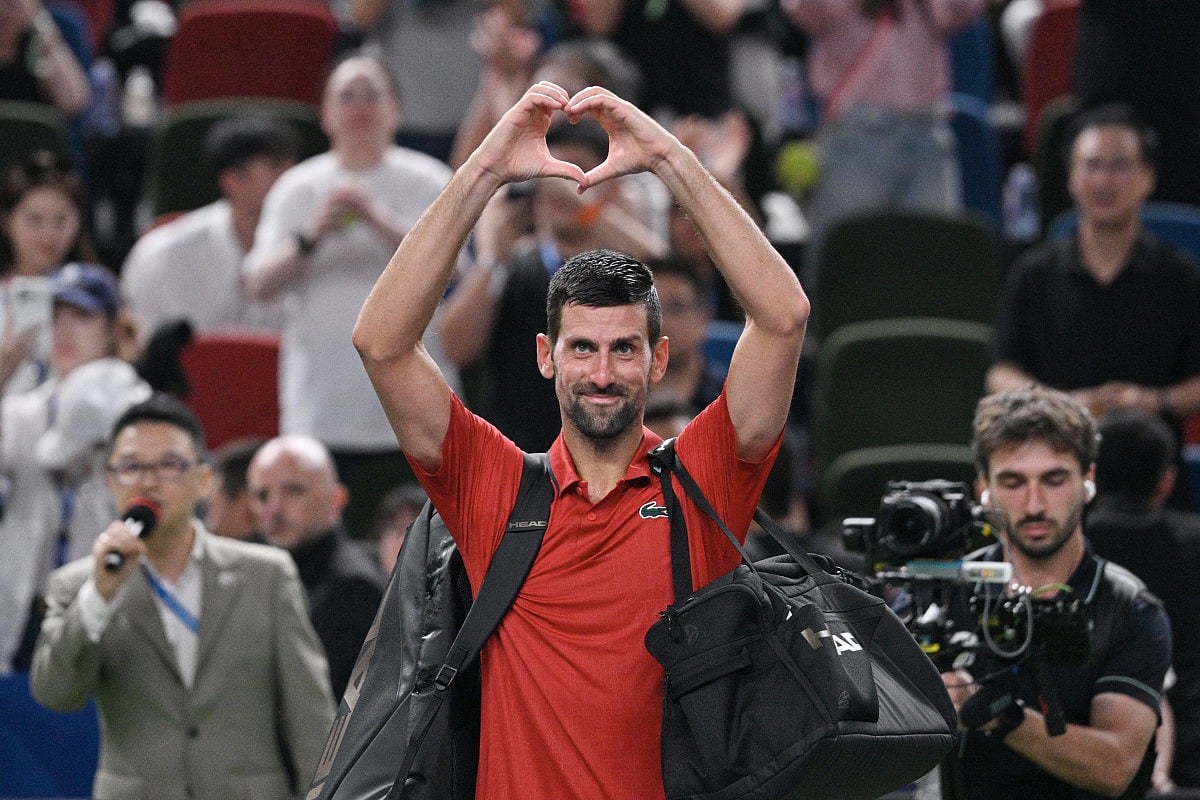Will Novak Djokovic announce his retirement after 2026 Australia Open?
Stunning loss to qualifier in Shanghai Open serves as a stark reminder to Serb star

Dubai: Novak Djokovic turned 38 this past May — a milestone that would be a career postscript for most athletes, but not for one of tennis’ most enduring champions. However, even for a player of his extraordinary calibre, time appears to be tightening its grip.
Djokovic has been meticulously managing his schedule in recent seasons, clearly aware that his body no longer recovers or endures the way it once did. While he remains one of the most intelligent and skilful players in the sport, there’s no denying that the demands of modern tennis — especially against the explosive new generation — are beginning to outpace his physical capabilities.
The clearest evidence yet came during the 2025 Shanghai Masters, where Djokovic was handed a stunning semi-final defeat by a virtually unknown qualifier, Valentin Vacherot. The 25-year-old Monegasque player, ranked outside the top 200, pulled off the shock of the year by downing the 24-time Grand Slam champion in straight sets, 6-3, 6-4. It was the biggest win of Vacherot’s career, and one that secured him a final meeting against France’s Arthur Rinderknech — who, interestingly, is also his cousin.
For Djokovic, however, the loss sparked immediate speculation: Is the Serbian maestro finally nearing the end of his legendary journey?
Reality check
The Shanghai defeat was more than just an upset; it was a loud wake-up call. With both Carlos Alcaraz and Jannik Sinner — his fiercest young rivals — bowing out early due to injury and withdrawal, the path seemed wide open for Djokovic to claim his 101st ATP title. Instead, he faltered against a player more than a decade his junior, struggling to keep up with the pace and physicality of modern tennis.
Once virtually unbeatable in such situations, Djokovic now finds himself increasingly vulnerable. And with his trademark resilience looking somewhat dulled by age and injury, fans and pundits alike are beginning to wonder how many more matches — let alone Grand Slams — he has left.
Former World No 1 in doubles, Rennae Stubbs, voiced what many have quietly suspected. Speaking on GB News, Stubbs remarked, “I feel like the Australian Open is going to be his last major tournament to play. I don’t think he wants to keep playing after that and have to go through the French Open.”
Her reasoning is sound. Clay courts, such as Roland Garros, are physically punishing, and with the likes of Alcaraz and Sinner dominating the scene, it’s hard to imagine Djokovic surviving a gruelling five-set battle on that surface. Wimbledon, too, requires peak fitness and mobility — traits that are harder to maintain deep into one’s 30s.
“The Australian Open would be a great way to finish his career. It’s where his Grand Slam titles started,” Stubbs added, pointing to the symmetry of a potential farewell at his most successful Slam, where he has already lifted the trophy 10 times.
Still competitive?
Djokovic has openly acknowledged the difficulty of competing over five sets against younger rivals but has maintained that he can still bring intensity in shorter formats. That made the Shanghai Masters a crucial test — one that, unfortunately for him, didn’t go as hoped.
Despite looking fresh coming into the tournament and being the clear favourite after early exits from the next-gen stars, Djokovic couldn’t match Vacherot’s relentless energy and precision. And while upsets happen, this one hit differently. It wasn’t a matter of tactics or mental lapses — it was the physical disparity that stood out.
This loss could weigh heavily on Djokovic as he considers his next steps. The Six Kings Slam exhibition event in Saudi Arabia is up next — a lucrative $1.5 million payday regardless of performance — but beyond that lies the Australian Open, the first Grand Slam of the new year and possibly, the last of his unparalleled career.
Even if Djokovic does line up in Melbourne next January, it’s becoming increasingly unlikely that he’ll commit to the full Grand Slam calendar in 2026. The physical toll, coupled with the rapidly evolving field of contenders, means the margin for error has never been smaller.
Network Links
GN StoreDownload our app
© Al Nisr Publishing LLC 2026. All rights reserved.